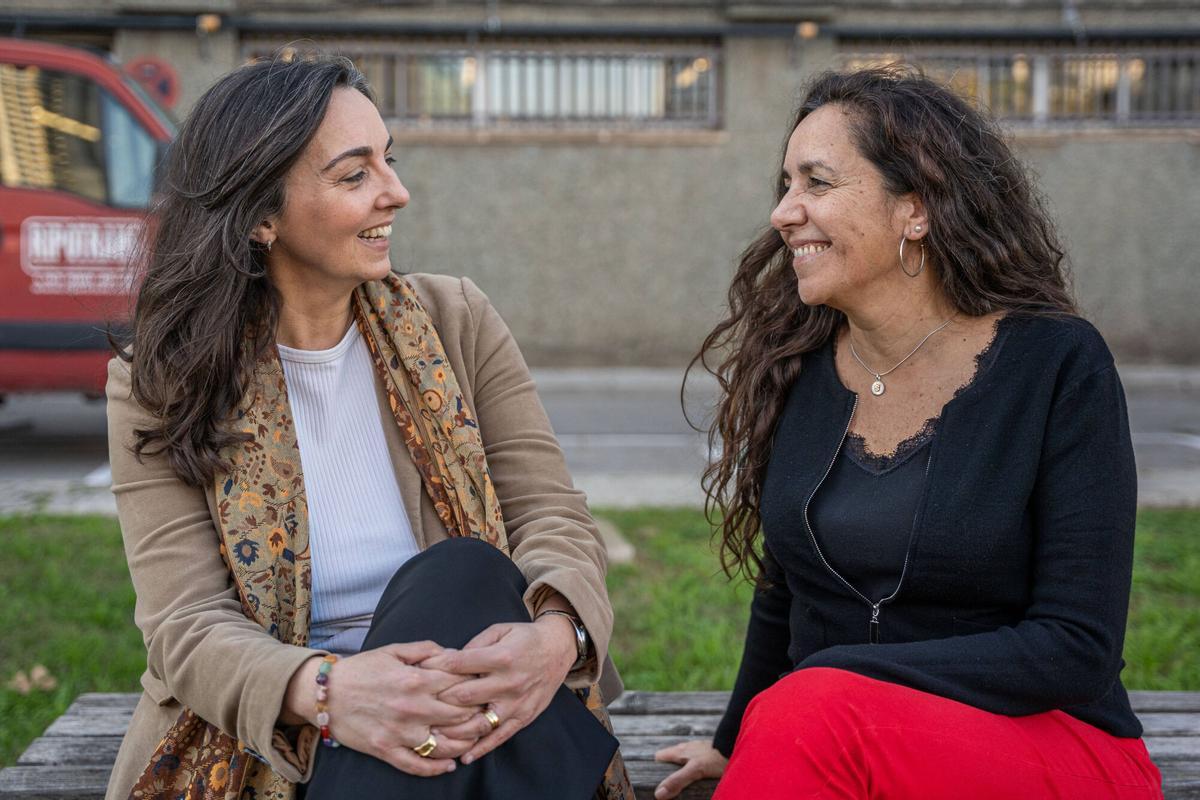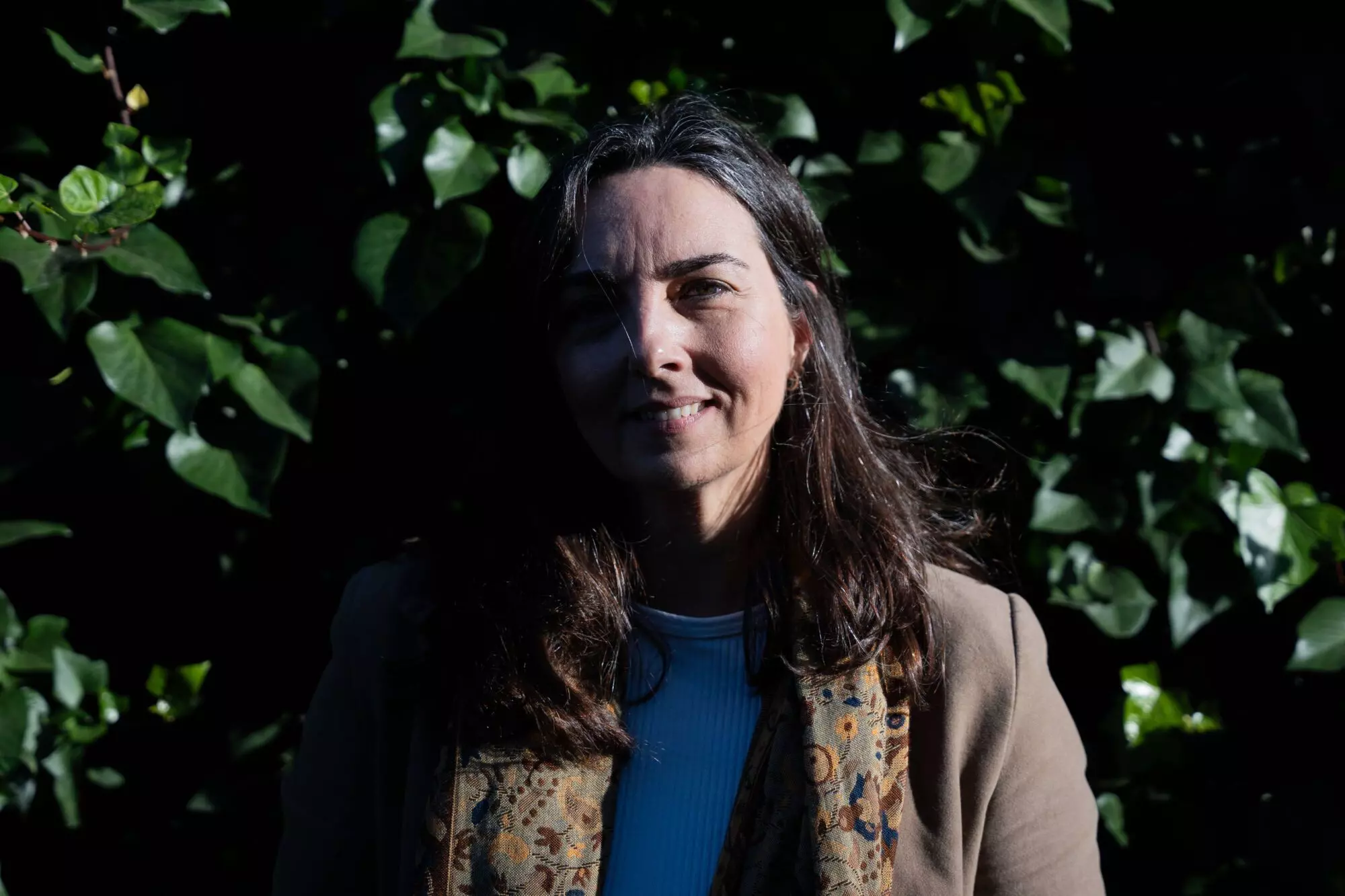“Spirituality connects the doctor with the patient in a very intimate way”

Sara Pons He studied Law through family inertia but ended up as head of the Spiritual Health service at the Fundació Sanitària Mollet. Together with the University of Barcelona, the first Chair of Spiritual Health and Humanization has been launched, directed by Anna Falcó-Pegueroles, nurse, associate professor at the Faculty of Nursing and expert in Bioethics.
-Where does your link with spirituality originate?
-I have a Law Degree and have worked for twenty years as an executive in a multinational. Now you will ask me why a law graduate does this (laughs). Since I was little I have innately developed spirituality and I have always wanted to help others. I felt like a calling to accompany close people who were dying. And I started to notice that this was my thing. There was a restructuring in the multinational and I made what I wanted a reality, working in a Hospital. I trained in London and the position in Mollet came about.
-How does spiritual care come about at the Mollet Hospital?
-From 2017 to 2023 we have provided a spiritual care service for patients, families and health professionals, because when we are working we also carry our own personal and professional problems in our backpack, the robe does not take them away from us. For care that offers serenity, calm and tenderness, which are characteristics of spiritual care, the professional must have these skills and if they are suffering it is very difficult for them.
-Has it worked?
-Yes, there have been 3 thousand visits to patients and relatives and about 300 visits to professionals, 80% for personal reasons.

Sara Pons, Head of the Mollet Health Foundation Service, together with Anna Falcó, head of the chair of Spiritual Health and humanization at the UB / Marc Asensio Clupés
-How is spiritual contact established with the patient?
-We present ourselves as a spiritual, non-religious health service that accompanies them in the situation they are in and that is integrated into the medical team. The intervention is mainly based on listening. Listen to the person’s story about their illness. It is important from where you listen, the depth from which you work. It is listening from silence, warmth, tenderness and reading what is not being said but may be happening. Any trained professional can do it.
-How do patients rate it?
-We have very good qualification results. They feel very accompanied, listened to and calm. We work a lot in collaboration with mental health and consult, that is when we can see situations that are signs of a disorder and it is about mental health making the correct diagnosis. In that case, spiritual health is removed.
-Do we have the spiritual dimension of our lives covered?
-We have it very covered. And very mixed with the religious part, which are beliefs that enrich the person. But regardless of these beliefs, we all have a spiritual dimension.
If the person has a developed spiritual dimension, he or she assumes losses in all other dimensions much better.
-What is the spiritual dimension?
-When we see a landscape or a baby or a sunrise and we get excited, this is part of the spiritual dimension. In a situation of adversity, of hospital admission, the person becomes unbalanced in all its dimensions. If the person has a developed spiritual dimension and we know how to enhance it, they cope much better with losses in all other dimensions, physical, psychological and social.
-What happens to people with mental disorders?
-We do not treat people with disorders, we refer these cases to mental health, which is beginning to have an interest in spirituality and to train. I get psychiatrists who use these tools and receive letters from their patients telling them: “I don’t know what you’re doing lately but in these sessions you touch my soul.”
Mint health is beginning to have an interest in spirituality and to form
-Since the pandemic, is there more sensitivity among mental health professionals regarding this dimension?
-Yes, and there are more and more people who do yoga and meditation, including professionals. But they didn’t know how to link it with their professional life. This spirituality gives them coherence between the personal and the professional and helps them refresh the purpose and objective for which they decided on their profession, because it makes them connect with the patient in a very intimate way.
-Can spiritual food be as useful as a pill?
-If there is a pharmacological prescription it is for a reason, but it is true that spirituality is complementary, it helps to find an inner strength from calm to approach things.
-Is spirituality compatible with an individualistic and materialistic society?
-What happens when we are sick, when we are at maximum vulnerability and in the hands of someone we don’t know at all? Well, at that moment we looked for it. And there are many people, without academic or spiritual training, who when this moment arrives find an internal resource of maximum peace. A woman who was dedicated to taking care of houses said “I want to go in peace and leave peace.”

“We must start from a holistic model of the person”
-How do mental health professionals approach spirituality?
-It is not that we put spirituality in mental health, it is that it is the fourth dimension of people, according to the WHO, along with the biological, psychological and social. It is not about acting as a psychologist, but as health professionals we are clear that, from a holistic conception, we must take into account that pain has a physical, emotional and social part, and another spiritual part.
-But this holistic vision is not applied too much in consultations…
-Yes, yes, but focusing on spirituality, with a non-religious approach, opens the door so that we can dedicate ourselves in depth to studying, with scientific evidence, the extent to which these spiritual issues have an impact on the person.
-Is there scientific evidence of this?
-We have been clear, for years, that at the end of a person’s life any professional will do whatever it takes to meet their needs. The difference with our chair is that it is approached from a secular and salutogenic perspective, to encourage an appreciation of the spiritual dimension. There are studies in oncology, cardiology, gynecology, which are based on questionnaires and specific interventions and which demonstrate a difference in the patient’s health results. It is about giving spiritual care and tools to professionals to address spirituality from a scientific perspective so that we can quantify and evaluate it as we do with other parameters such as quality of life and discomfort or well-being.
-How will this chair help people’s health?
-Experienced, trained professionals have the ability to identify what intervention each family or each patient or professionals need to channel this need to face adversity.





